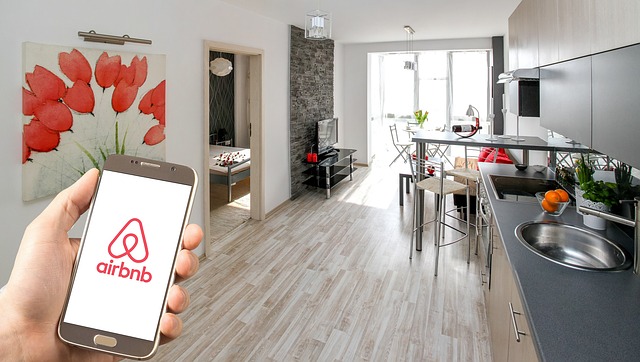
Rental property management companies were put on their heels because of the pandemic. In 2021, the bleeding from the pandemic seems to have slowed, but these companies aren’t out of the woods yet. Additionally, the pandemic revealed some undercurrents that could have impacts on the industry as a whole.
These undercurrents pose whether smaller hosts and vacation rental property management companies can continue to use larger booking platforms such as Airbnb as a lucrative option. This article examines when the Airbnb property management industry will recover from the pandemic and whether trouble still lies ahead due to other factors.
Revenue Loss
The year-over-year revenue comparison in Airbnb was unsurprisingly disappointing. A Forbes survey found only 5% reported a 10% or less revenue loss. Nearly 30% expected at least a 50-70% revenue decrease. 27% expected a 26-50% revenue loss.
Due to this decrease in revenue, rental property managers and owners alike have had to adapt their policies. They’ve had to get creative with how they respond to COVID-related revenue loss. Perhaps the most common adaptation strategy is owners offering extended stays rather than short-term rentals.
This strategy comes in response to changing travel personas. Those looking to self-isolate and those working remotely for extended periods are both prime targets for the longer-term rental business model. Property owners and rental property management companies both would do better to offer 14 and 30-day rentals.
Adapting to the Current Environment
To respond to the changing environment, rental property management companies and owners have to adapt their strategies to fit evolving needs. These adaptions revolve around creating policies around changing health regulations and updating policies that respond to cancellation policies.
More than half of short-term management companies reported more stringent cleaning protocols. Companies have even reported a possible robotic cleaning system to reduce human interactions. The survey also found that the most successful companies during the pandemic implemented flexible cancellation policies and decreased their daily rates.
Many owners and property managers promoted all three of these strategies to adapt to the changing climates. They have also incentivized guests by promising them future stays at discounted rates.
The Short-Term Rental Industry Is Expected to Recover by the End of the Year
Another Forbes article found that short-term rental historical performance, recent trends, and slower-than-anticipated vaccination rates point to September as the target for deep recovery. The Forbes article projected that year-on-year growth wouldn’t happen until that point. They made this conclusion based on them anticipating the occupancy likely not matching 2020’s until September.
Eliminating Regulations Is a Pre-Requisite to Recovery
Other factors that will influence the recovery are the lifting of regulations on travel and recreational activities. The more restrictions in high-traffic tourist areas, the more challenging it will be for short-term rentals to return to their typical level.
In addition to COVID-19 restrictions, the short-term rental industry faces challenges from city restrictions. Some cities, such as Denver, have instituted short-term rental management fees. The bottom line is, regulations of all sorts take tolls on hosts.
The Need to Resist Corporatization
Another overarching threat to short-term AirBandB rentals is the threat of corporatization. With large businesses such as Sonder taking strongholds on the industry, smaller owners and rental property managers are under duress from REITs, vulture funds, global development tycoons, and private equity firms.
These entities are threatening to cut out the middlemen and take over the market themselves, effectively turning the industry into big hotel companies 2.0. If the trend continues, smaller hosts and rental property management companies won’t keep up with the financial resources and developmental connections to compete.
The Shift to More Direct Bookings
More prominent platforms are starting to drive hosts away. COVID brought many of these hosts’ frustrations to the forefront when their CEO, Brian Chesky, apologized for unilaterally refunding guests during the pandemic. The move left many hosts empty-handed throughout the ordeal, with little resources in place to soften the blow.
The shift to more direct bookings will help put more money in the hosts’ hands and mitigate their losses to the more prominent hosting services. One beneficial product of the pandemic is that hosts are learning how to rely on themselves increasingly.
Platforms Are taking More Money from Hosts and Property Managers
Additionally, the larger platforms are taking more and more money from hosts and rental property managers. Higher commissions could push the industry toward more direct bookings. COVID also forced the larger platforms to place more restrictive limits on host-guest interactions.
A disturbing trend is that many of the largest vacation rental property managers have limited interactions with Airbandb’s C-suite. Airbnb also hasn’t demonstrated any concern for the needs of its professional suppliers. The question that faces rental property managers and hosts alike is whether they will continue to depend on the larger platforms for their bookings or whether they will start to turn to other options. This question gained traction in the wake of the pandemic.
The pandemic called into question the sustainability of larger platforms such as Airbnb and made it clear hosts may turn to other options in the future. The pandemic itself made Airbnb’s future uncertain.
With larger corporations such as Sonder gobbling up capital and Airbnb increasing its restrictions on hosts, you could see an emerging shift from smaller hosts and vacation rental property management companies. So, the question of when the Airbnb property management industry will recover remains unclear.












